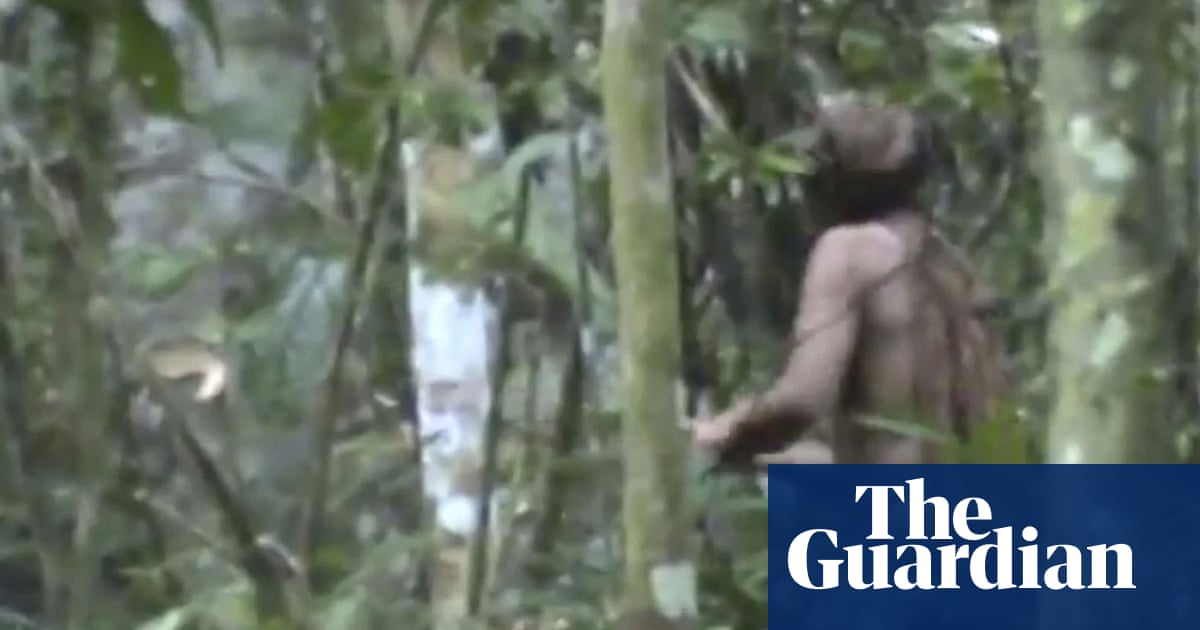For at least 26 years a man known as Tanaru lived alone in a small forest in the south-western Brazilian Amazon, moving around his territory, building several houses, planting crops and hunting. He also dug large, mysterious holes inside his homes.
When a team from the National Indigenous Peoples Foundation (Funai) came across him in 1996, he resisted contact, aiming an arrow at them through a gap in his palm shelter, a scene captured in the 2009 documentary Corumbiara. In 2007, Funai officials made another attempt at contact. Again Tanaru repelled it, leaving one man with a bad arrow wound.
He lived undisturbed for another 15 years as the environmental destruction continued around him in Rondônia, one of Brazil’s most deforested Amazonian states. Some called him the “man of the hole” without knowing why he dug the holes.
In 2022, Tanaru lay down in his hammock and died; Algayer was the one who found him. His death, confirming the extinction of his people, made the future of his 8,000 hectares (19,800 acres) of rainforest contentious. Local lawyers argue against demarcating it as Indigenous land, citing a lack of native population. Government prosecutors insist the territory was historically occupied, so should be protected despite not having Indigenous people left in it. The dispute highlights the complexity surrounding the fight for Indigenous land rights, the impact of historical atrocities, and the ongoing risk to uncontacted people (isolados) in the Amazon.



Kind of a similar sentiment is that every human in a community is accepted as valuable, simply because they are human.
We forgot that simplicity when we moved from hunter-gatherer to farming and land ownership.
Yep, owning implies so many things
Interestingly enough (at least to me), his ancestors very possibly went back to a hunter-gatherer lifestyle from farming because there were large, settled Amazonian societies which collapsed.
https://www.nbcnews.com/science/science-news/lost-cities-oldest-ancient-complex-found-amazon-1000-years-rcna133608
There is also a small amount of documented evidence of a lot of settled farming societies along the Amazon river soon after European contact, but they were probably all killed off by disease rather quickly, or at least enough for the survivors to abandon the farms and enter the interior and become hunter-gatherers like their ancestors were thousands of years before. Those accounts were dismissed for a very long time because the rainforest took over so quickly that any evidence of those cultures were gone by the time Europeans did any real exploration.